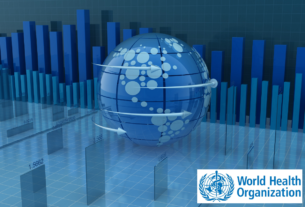In January 2025, Pascal Lamy, former head of the World Trade Organization, advised the European Union to adopt a tougher stance in its negotiations with the United States and China. Lamy suggested that the EU enter discussions with these global powers while maintaining a position of strength, symbolized by having a “gun in the pocket.” His comments reflect concerns over the EU’s growing vulnerability in global trade and political relations, particularly in the face of rising tensions between the U.S. and China.
Lamy’s metaphor of having a “gun in a pocket” stresses the need for the EU to be prepared to take decisive action if necessary. He warned that relying solely on diplomatic niceties would not suffice in the current geopolitical environment. As the EU faces an increasingly competitive and polarized global stage, Lamy emphasized the importance of maintaining leverage through economic power and strategic alliances.
The EU’s diplomatic efforts have often been seen as weaker than the aggressive approaches of the U.S. and China. In recent years, the U.S. has prioritized its national interests, employing tariffs and sanctions to push its agenda. At the same time, China continues to expand its influence through trade partnerships and military presence. Lamy pointed out that the EU must assert its interests more clearly and be ready to defend them rather than depending solely on soft power.
While significant, the European Union’s economic and political clout has often been overshadowed by the more critical, dominant global player. Lamy’s remarks suggest that the EU needs to evolve its approach to diplomacy by using economic leverage and strategic influence to secure favorable outcomes. For the EU to assert itself effectively, it must act with a unified voice and demonstrate that it can match the hard-hitting tactics of its competitors.
Lamy also highlighted the importance of working with allies and leveraging collective bargaining power. The EU can build more substantial negotiating positions by collaborating with countries with common interests. This would allow Europe to counterbalance the pressure from the U.S. and China, ensuring its voice is heard in shaping global trade rules and diplomatic relations.
The stakes are high as the EU navigates its complex relationships with the U.S. and China. The ongoing trade tensions, particularly over technology and economic influence, require Europe to rethink its position in global negotiations. Pascal Lamy’s comments underscore the necessity for the EU to become more assertive and strategic, using both economic power and tactical diplomacy to protect its interests on the world stage. The challenge is for the EU to adopt a more robust approach to its foreign policy, balancing cooperation with competition and standing firm when necessary.




